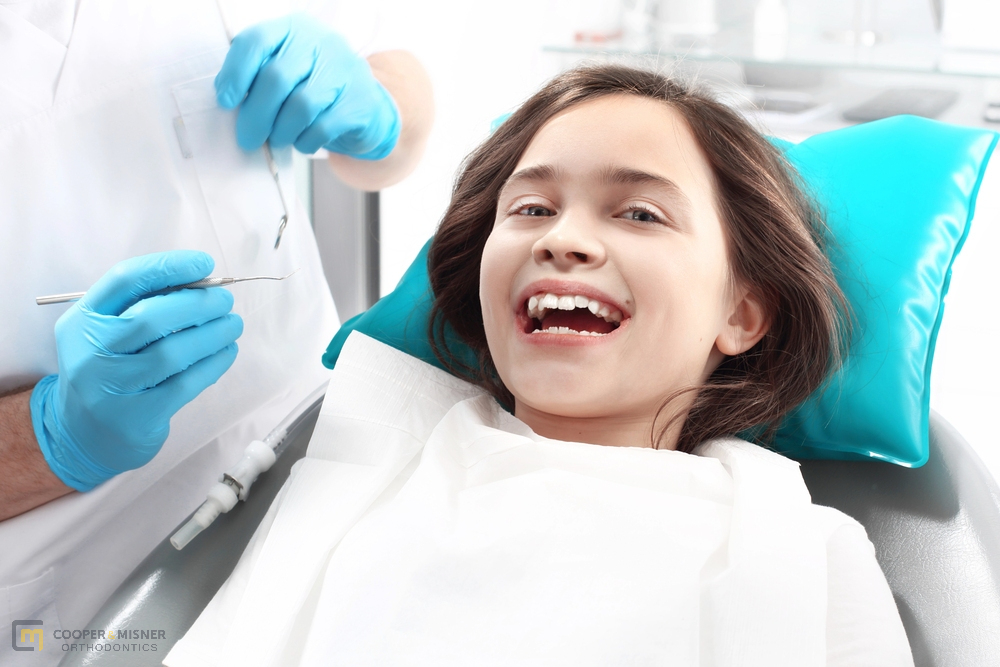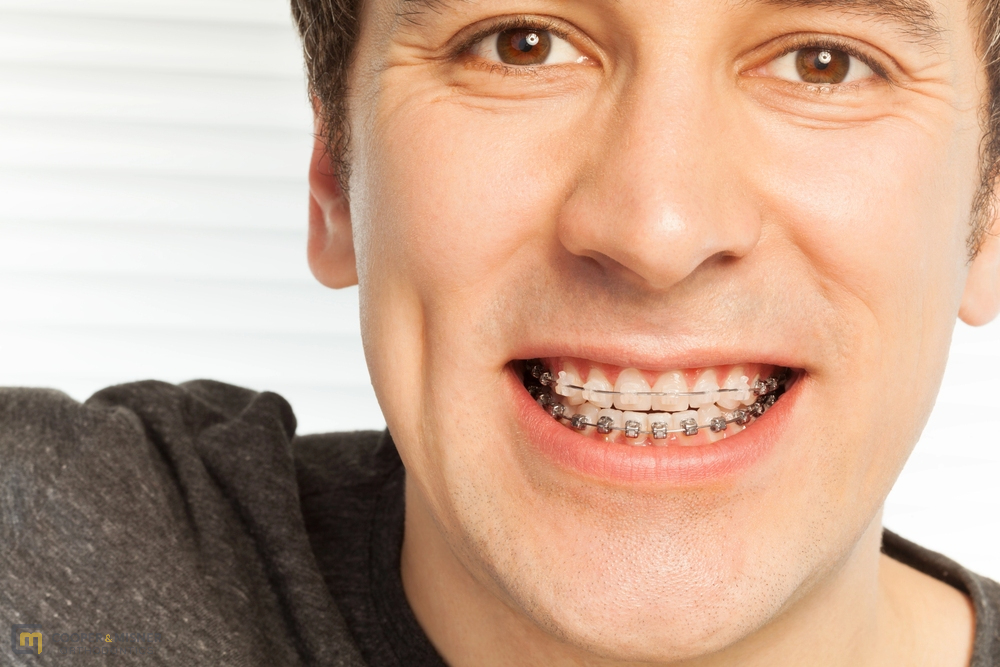Curious about the differences between “overbite vs underbite in Tulsa, OK”? These bite alignment issues can affect eating, cause jaw pain, and even lead to headaches.

What Are Overbites and Underbites
An overbite happens when the top teeth overlap the bottom teeth too much. An underbite occurs when the lower teeth stick out past the upper teeth. Both conditions affect jaw shape, chewing, and smile appearance.
Overbites often start in childhood due to growth patterns or habits like thumb sucking or pacifier use. Underbites are usually genetic. In some cases, kids need early treatment with expanders or reverse pull headgear to guide healthy jaw growth.
Common Causes of Bite Problems
Several factors affect bite alignment in children and adults, including:
Genetic Factors
Many bite problems are passed down through families, including crowding, spacing issues, and abnormal jaw shape.
Childhood Habits
Prolonged thumb-sucking or continued pacifier use can lead to bite misalignments, altering tooth movement and jaw development.
Diet and Lifestyle
A soft-food diet can limit chewing activity, which is vital for promoting proper jaw shape through natural growth stimulation. Encouraging harder-to-chew foods during childhood supports normal growth patterns and teeth alignment.
Delayed Dental Care
Skipping early exams can allow growth imbalances to worsen, leading to more intense malocclusions or the need for complex interventions like extractions or surgery.
Problems Caused by Bite Misalignment
Bite problems do more than affect your teeth. Without treatment, they can impact your overall health, including:
- Jaw Pain: Overbite and underbite patients may experience TMJ (temporomandibular joint) pain, jaw tension, or clicking. This discomfort can even cause headaches.
- Breathing Issues: Bite misalignment can block airflow, leading to snoring or even sleep apnea. This can reduce energy and overall well-being.
- Chewing Problems: Misaligned teeth make chewing less effective, which may affect digestion.
- Speech Issues: Some bite problems can make it harder to pronounce certain sounds, like “s” or “th,” lowering confidence.
- Tooth Wear and Tear: Overbites and underbites cause uneven tooth movement, leading to enamel loss, cavities, or sensitive teeth.
Orthodontic Treatment Options in Tulsa
Modern orthodontics offers several ways to fix overbites, underbites, and other bite alignment issues:
Braces
Braces use brackets, wires, and elastics to move teeth slowly and correct bite alignment. They are one of the most reliable treatment options for both simple and complex cases.
Clear Aligners
Clear aligners, like Invisalign, are discreet and removable. They gently guide teeth into proper positions and work well for mild to moderate bite problems. Patients often choose aligners because they are transparent and easy to maintain.
Bite Appliances
Special tools, like bite turbos, jaw expanders, or elastics, are often used to guide proper jaw alignment. These appliances work best for growing children, helping to guide jaw development and reducing the need for surgery later. According to Dr. Mark Komforti, a board-certified orthodontist in St. Augustine, FL, orthodontic appliances are an excellent option for addressing jaw alignment issues early, setting the stage for long-term oral health.
Surgery
For severe jaw misalignments, orthognathic surgery may be necessary. The procedure repositions the jaw to improve function and appearance. Braces or aligners are often used afterward to complete the treatment.
Benefits of Bite Correction
Fixing your bite offers more than a nice-looking smile. Proper bite alignment can:
- Ease Chewing Problems: Improved jaw alignment makes eating easier and better for digestion.
- Reduce Jaw Pain: Correcting bite problems reduces strain on the TMJ. Patients often notice fewer headaches and less jaw discomfort.
- Enhance Facial Appearance: Balanced jaw alignment improves facial symmetry and boosts confidence. A
- Prevent Long-Term Damage: Proper alignment avoids enamel wear, tooth fractures, and gum problems.
- Improve Speech: Many patients find it easier to speak clearly after treatment.
Cost of Overbite & Underbite Treatment in Tulsa, OK
The cost to fix an overbite or underbite can vary for each patient. Your price depends on how severe the bite is and which treatment is best for you.
Mild bite problems are often treated with braces or clear aligners. These options usually cost between $3,500 and $7,500.
What Happens After Treatment?
Retention: After completing the treatment timeline, patients must use retainers to maintain their new alignment. These can be removable or fixed, based on your orthodontist’s recommendation. Wearing a retainer is crucial to prevent relapse.
Oral Hygiene Habits: Brushing, flossing, and regular dental cleanings are important to preserve your results. Poor dental hygiene can lead to gum issues and affect your new alignment.

Choosing the Right Orthodontic Provider in Tulsa
Picking the right orthodontist can make your treatment journey smooth and stress-free. Look for providers who offer:
- Advanced Imaging: 3D scans for accurate treatment planning.
- Personalized Treatment Plans: Solutions designed for your specific malocclusion.
- Financing Options: Flexible payments to make care affordable.
At Cooper & Misner Orthodontics, we offer free consultations. We discuss your treatment requirements, timeline, and expected outcomes so you know what to expect.
Start Your Smile Journey with Cooper & Misner Orthodontics
Don’t let an overbite or underbite impact your confidence or health. Cooper & Misner Orthodontics in Tulsa, OK, specializes in helping children and adults achieve healthier, brighter smiles.
Schedule a consultation with us today to learn about your bite alignment and treatment options.
About The Authors
Dr. Kenner Misner – Orthodontist in Tulsa, OK
Dr. Mark Komforti – Orthodontist in St. Augustine, FL
Frequently Asked Questions
Is fixing an overbite worth it?
Yes! Fixing an overbite is worth it. It can improve how you chew and speak, and lower the risk of jaw pain or headaches. Plus, it gives you a more confident smile. It may take time, but the results are worth it.
At what age should an underbite be treated?
The best time to treat an underbite is usually between ages 7 and 10, while the jaw is still growing. Early treatment is easier, but teens and adults can get great results too. See an orthodontist as soon as you notice an underbite to find the best time to start.
Can you fix an overbite and underbite completely?
Yes, most overbites and underbites can be fully fixed. Braces, clear aligners, or surgery for severe cases can help. Treatment takes time, but with the right plan, you can get a healthy bite and a confident smile.


